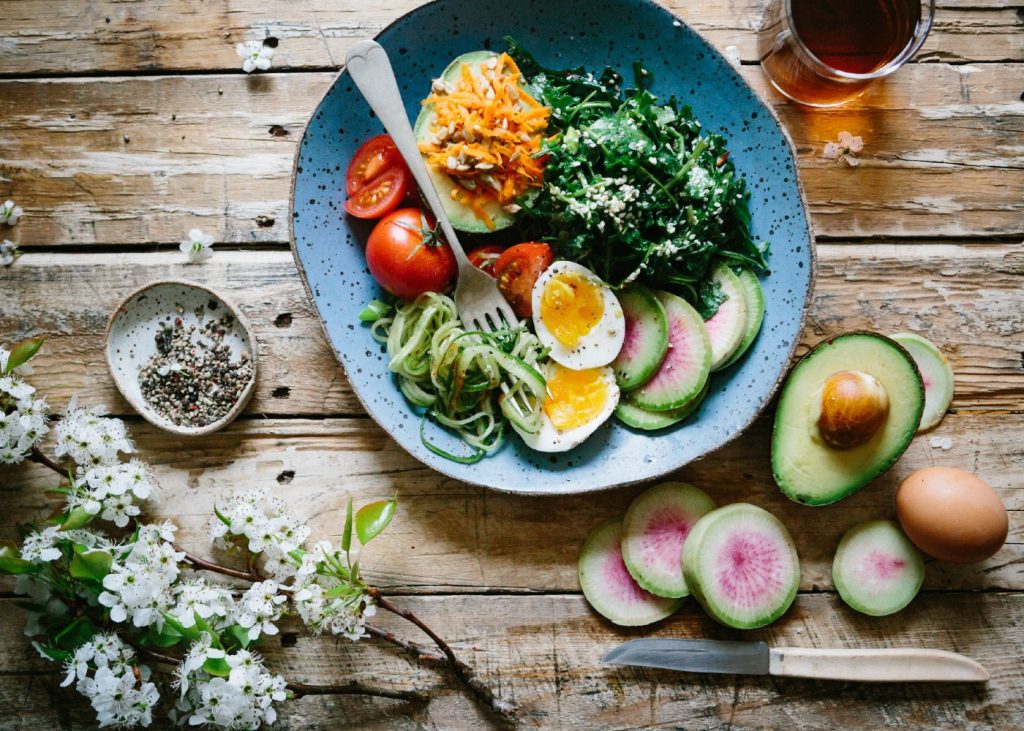By Susie Hopkins
For so many mums of kids with disabilities, 2020 and 2021 have been next level stressful. We’ve been in harsh, extended lockdowns so much of the time, especially here in Melbourne, and the impact of Coronavirus has been so difficult in so many ways. Financially, emotionally, you name it. It has been really tough for my family, as it has been for many of us. (I parent my seven-year-old son, Harry, who is autistic and has ADHD solo. He has substantial care needs so it’s been a lot to contend with…)
Motivation and willpower fall by the wayside when life is so stressful. They both require energy – which is so hard to come by at these times. We all know that we should be looking after ourselves but doing so can be a whole other story. The first thing to go for me is planning healthy meals and doing any exercise. I stay up later than normal ‘unwinding’ in front of the latest series. And the cycle repeats.
Suddenly my diet has gone downhill and I’m getting nowhere near enough sleep or exercise. I meditate less too, which is so important for my sanity. Thankfully, I tend to get to a point when enough is enough and spurred on by feeling terrible, I dig deep and find the motivation get my act together because I feel so crappy, making some long overdue changes is the only option.
I’m lucky though, I have a lot of tools for coping in tough times as I’m a stress management and mindfulness coach. (None of us are totally immune to this much stress though!) And if I’m having this much trouble putting in place basic self-care, I know that so many others are really struggling too.
So I thought it would be helpful, as I make the effort to get my sh*t together, to remind other mamas of some simple principles to help you look after yourself and your family as well.
Food, not so glorious food
I don’t know about you, but I am SO SICK of cooking. There have been more nights where we have had Weetbix or avo toast for dinner lately than there was in the three years before Covid. And that’s OK! I’m all for simple. It’s sugar that we really need to watch. Foods that are full of sugar and other rubbish are comforting so it’s easy to have more of them in times like this. We have had too many treats lately, that’s for sure.
I always like to refer to this fabulous seven-word summary of what constitutes ‘healthy’ when it comes to food. “Eat food, mainly plants, not too much”. This famous quote is from Micheal Pollon who has studied healthy eating from more of a social and cultural angle than the traditional way science breaks down food into groups and nutrients.
By “eat food” he is referring to the fact that much of the “food” we eat these days is not in fact anything like what food has been in the past. As he suggests “Don’t eat anything your great-grandmother wouldn’t recognize as food.” This is such a great principle to follow right now! There are so many options at the supermarket I’ve been buying of late because they’re ‘easy’ that my grandmother would not recognise as food.
And one of his other recommendations when it comes to eating in a way that promotes wellbeing is equally simple, and that is to eat sitting down at the dinner table with others. In other words, try to avoid eating in front of the TV or your phone, and pay attention to what you’re eating. In terms of inspiration for yummy, simple meals that are nutritious, I love the Here comes the aeroplane! Facebook group. I recently posted in it for ideas and got some great suggestions.
I like to move it, not!
For many of us we are stuck at home so much more than usual. Gyms and other exercise venues are out of bounds for some and not being able to access so many activities can make it very tempting to stay indoors, especially if the weather’s bad (thank God spring has arrived!)
For those of us juggling parenting and work, we spend crazy amounts of time sitting in front of a computer too, and we’re allowing our kids more screen time as well. This is a recipe for disaster for our own and their mental health
Forcing yourself to get outdoors is essential right now. If at all possible, go to green spaces as often as possible. I know it can be hard to get out of the door but I am always, always so pleased I made the effort to get out. I bought myself a scooter a few weeks ago and I’m absolutely loving hooning around the neighbourhood with Harry. I know this may not be possible for others, but my point is, get creative. How can you move your body more? Mix it up, try something new.
My other favourite way to move my body is dancing in the living room. I’m not going to lie though, I’m struggling to do this of late. We normally dance a lot around here but we have been doing so a lot less of late. So, today we are doing an online dancing class together. Creating some sort of accountability by investing in an online yoga class or making some other commitment that involves someone else, even if it’s just a walk with someone else can be a great way to get moving too.
So tired but so reluctant to go to bed
Seven to nine hours of good quality sleep is important for wellbeing and one of the best ways to ensure you get enough is regularity. In other words, as much as possible, try to go to bed and wake up at the same time every day.
Opportunities for quality rest and relaxation are also important for wellbeing. Time should be regularly set aside to spend time with people you care about doing things that you love. Leisure activities such as creative projects, hobbies and spending time in nature are particularly good for your wellbeing.
Managing stress
Deep breathing exercises and other practices that involve breathing and that calm the breath, such as mindfulness meditation, yoga, martial arts and specific relaxation exercises (e.g. visualisation and progressive muscle relaxation) are effective at lowering stress levels.
And echoing the importance of spending quality time with loved ones above, human connection is important for lowering stress levels. It is important to nurture connections with friends and family as the quality of our relationships is critical to reducing stress.
And finally, all of the above principles will help with reducing stress levels, and in particular, getting plenty of exercise and sleep are incredibly effective for this.
References
http://www.webmd.com/food-recipes/news/20090323/7-rules-for-eating#1
https://www.sleephealthfoundation.org.au/

Learn how to feel less stressed in under an hour
A FREE crash-course for parents of kids with special needs – Because when you’re less stressed your whole family benefits.
Specially designed for time-poor parents and carers, this concise course is packed full of actionable insights to help you create a life with less stress for the whole family.
It has been created by Susie Hopkins who is a Registered Nurse, has a Masters of Public health and yoga and mindfulness qualifications. She has been teaching stress management for almost 10 years and is also the sole parent of an autistic child.
Click on the link above for more information.




